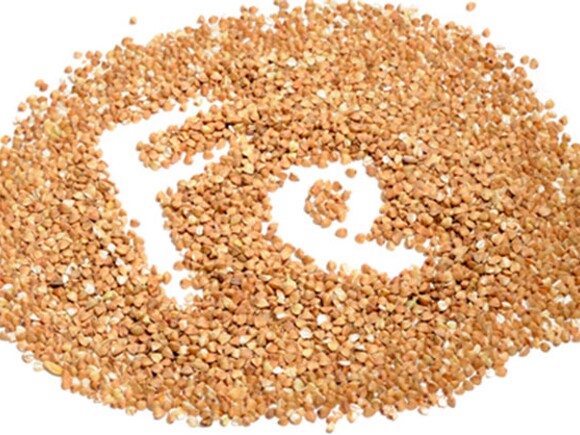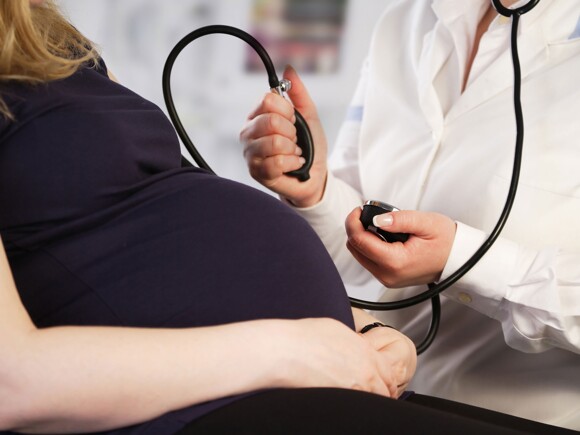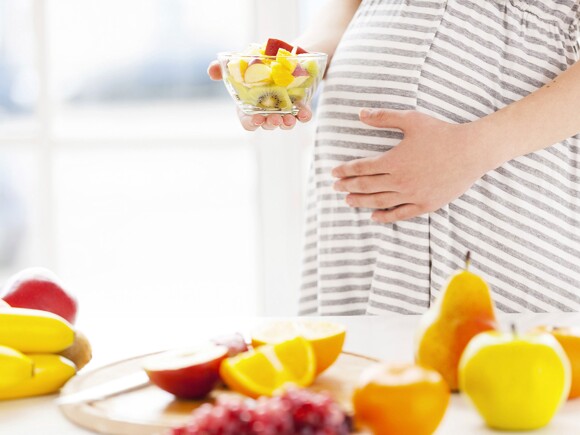CRAVINGS
Some women may start experiencing food cravings even before they find out that they are already 1 month pregnant. It’s one of the early signs of pregnancy.
Contrary to the popular belief, “paglilihi” is not necessarily a reflection of a pregnant woman’s functional needs. But this doesn’t mean that you should just brush it aside. A pregnant woman’s cravings should be listened to and validated, even if they are not always indulged. If you suddenly crave green mangoes in the middle of the night, it doesn’t automatically mean that your body needs more vitamin C. But it always helps to feel the support and understanding of your family.
When you have a craving:
- Remember that it is normal to experience cravings during pregnancy. Don’t judge yourself for having them.
- Allow yourself to give in to your cravings every now and then, as long as you maintain a varied and balanced diet.
MORNING SICKNESS
When does morning sickness start? Being one of the early signs of pregnancy, it could kick in when you are about 1 or 2 months pregnant, and may continue to occur throughout your 1st trimester.
Low blood sugar and hormonal changes during early pregnancy are usually the main reasons behind these bouts of nausea or vomiting. If you have morning sickness, you may wake up feeling queasy, but nausea can strike at any time of day.
Tips that may help you manage morning sickness:
- Snack on nutritious food such as simple bread toast or crackers before bedtime and upon waking.
- Avoid spicy flavors.
- With the advice of a healthcare professional, take prenatal vitamins during or after meals.
- Avoid anything with a strong odor as your sense of smell may be heightened during pregnancy.
- For severe nausea, it is best to consult your healthcare provider.
CONSTIPATION
Pregnancy hormones relax the intestinal muscles, thus slowing down your metabolism. At the same time, the growing fetus inside your womb can press up against your intestines, which slows down the digestion process even more.
Tips that may help you manage constipation:
- Drink plenty of fluids such as water, decaffeinated tea, juice, milk and soup. Juicy fruits and vegetables like cucumber, melon and watermelon can also help.
- Eat more fiber-rich fruits, leafy vegetables, and whole grains such as papaya, pineapple, water spinach, camote tops, chinese cabbage and oats.
- Stay active. Do regular walks to help fasten the movement of food in your body.
SWOLLEN ANKLES
Swelling is an effect of the hormonal changes that happen to a woman’s body when she’s pregnant. During pregnancy, your body naturally stores and retains fluids to meet the needs of the developing baby. Swelling is more noticeable at night, especially if you have been standing a lot during the day.
Tips that may help you manage swelling:
- Drink plenty of fluids to flush out sodium from your body.
- Avoid sodium-rich products such as processed foods and salty condiments.
- Put your feet up whenever possible.
- Avoid wearing tight shoes.
- If the swelling bothers you, consult your healthcare provider.
HEARTBURN
Heartburn during pregnancy is characterized by a burning sensation in the middle of your chest. This happens when your growing baby pushes against your stomach and intestines. In effect, stomach acids are squeezed up to your esophagus. When the muscle at the top of your esophagus relaxes, it creates an uncomfortable burning sensation we know as heartburn.
Tips that may help you manage heartburn during pregnancy:
- Eat slowly and take smaller but more frequent meals.
- Avoid greasy and spicy food.
- After eating, wait for an hour before lying down.
- Antacids contain high levels of sodium. Before taking any, it is best to first consult your healthcare provider.
BEING VEGETARIAN
Both vegetarian and vegan diets are safe during pregnancy, provided that they contain a good balance of high quality proteins, whole grains, fruits, vegetables and healthy fats.
Action steps that you may follow:
- Let your obstetrician know if you are (or planning to be) a vegetarian or vegan.
- Ask your healthcare provider for prenatal supplements containing vitamins B12 & D, folic acid, iron, calcium, and zinc to help cover any nutritional gap in your diet.
NON-TAKERS OF DAIRY FOOD
Even if you’re unable to consume dairy products, you still have other options so you get the right amount of calcium your body needs.
Consider these when shopping:
- Calcium-fortified nondairy products are a good option if you don’t like consuming dairy. Take products like orange juice, soymilk, almond milk and cereals.
- Our body doesn’t necessarily absorb all the calcium that we consume regardless if it’s from dairy or nondairy products. To make sure your body gets the amount of calcium it needs, you might have to take supplements. To know which supplements are best for your pregnancy, please consult your healthcare provider.
- Vitamin D is mostly found in dairy products. You can also consult your healthcare provider about a supplement that contains vitamin D.
HIGH BLOOD PRESSURE
Gestational hypertension is a pregnancy-induced condition characterized by high blood pressure. If you notice any signs or symptoms, please seek immediate medical attention.
Here’s what you can do to help avoid or manage gestational hypertension:
- Keep within the appropriate weight recommended for you.
- Stay active.
- Avoid alcoholic drinks and cigarettes.
- Consult your healthcare provider before taking any medications.
GESTATIONAL DIABETES
Insulin is a natural body hormone that regulates blood sugar. The need for it typically increases during pregnancy. When the body is unable to produce enough insulin to meet this surge in demand, gestational diabetes may develop. This in turn may cause an imbalance in your baby’s insulin, which results to high glucose or blood sugar levels. Babies who are born with imbalanced insulin run a greater risk of becoming obese or diabetic later on.
If you are suffering from this condition, your glucose levels will need to be monitored. You may also need to follow a special meal plan and increase your level of daily physical activity.
Ask your doctor to refer you to a registered dietician who specializes in gestational diabetes. Dieticians can customize a meal plan for you and guide you on how to manage your condition.
PREGNANT WITH MORE THAN ONE BABY
Carrying twins or multiples would require an additional amount of nutrients for your body. While you need to take in more calories, the food you choose should also contain the right nutritional values. Your nutritional requirements may vary if you started pregnancy underweight or overweight. To know how many calories a day and what nutrients are good for you, it is best to consult your healthcare provider.
LEG CRAMPS
Leg cramps are a common occurrence during the 7th to 9th months of pregnancy. They usually happen at night and are most likely caused by the additional weight you’ve been carrying.
To help you manage leg cramps:
- Stretch your legs and gently flex your toes and ankles.
- Get enough calcium. Consult your healthcare provider for a supplement that contains calcium and magnesium. This will help in controlling muscle contractions.
Remember that every pregnancy is different. You may experience some of these issues or none at all. Keep in mind that most of these concerns are actually manageable. You just have to follow the advice of your healthcare providers, as they know you and your pregnancy best!
Co-written with Reina Borlaza, RND.
References:
Understanding Normal and Clinical Nutrition 2E by Whitney, Cataldo and Rolfes
Badell ML, Ramin SM, Smith JA. Treatment options for nausea and vomiting during pregnancy. Pharmacotherapy. 2006;26(9):1273-1287.
National Heart, Lung, and Blood Institute. High blood pressure in pregnancy. Internet: http://www.nhlbi.nih.gov/health/resources/heart/hbp-pregnancy (accessed 24 September 2015).
American Pregnancy Association. Pregnancy and constipation. Version current July 2015. Internet: http://americanpregnancy.org/pregnancy-health/constipation-during-pregnancy/ (accessed 24 September 2015).
American Pregnancy Association. Pregnancy and heart burn. Version current July 2015. Internet: http://americanpregnancy.org/pregnancy-health/heartburn-during-pregnancy/ (accessed 24 September 2015).
American Diabetes Association. What is gestational diabetes? Version current 20 June 2014. Internet: http://www.diabetes.org/diabetes-basics/gestational/what-is-gestational-diabetes.html (accessed 24 September 2015).
United States Department of Agriculture (USDA). Dietary guidelines for Americans 2005. Version current 9 July 2008. Internet: http://health.gov/dietaryguidelines/dga2005/document/html/appendixb.htm (accessed 24 September 2015).





























